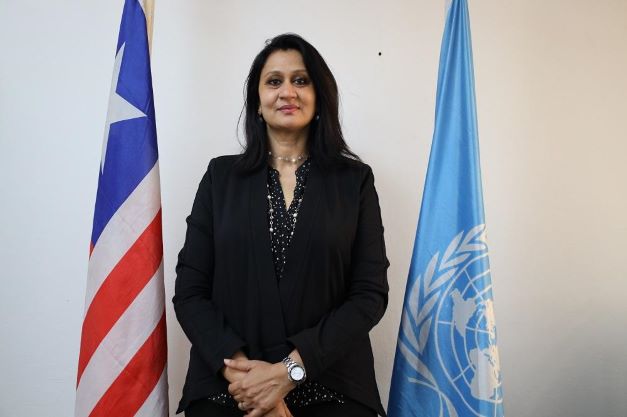Two out of every three persons in Liberia are under the age of 24 years. Any discussion, therefore, about Liberia’s progress and development, must be made with and for them. Young people in Liberia matter. They matter because they are the shapers and leaders of the country’s future.
Yet, too many Liberian youths are unable to participate fully in shaping and building their own future. One in five youth in Liberia are users of narcotic substances, and many more are at risk of use and addiction. Early marriage and teenage pregnancy are common among girls. Nearly 11 percent of females initiate sex at ages 11-14. Teenage pregnancy contributes significantly to dropout rates among school-going girls and 67 percent of adolescent girls with no education are mothers, compared to 17 percent of those with secondary and higher education. In addition, 26 percent of adolescent pregnancies are unintended and 30 percent end in unsafe abortion.
Young people are our future
The largest global youth population in human history will have a profound effect on every aspect of our shared future and can create a better world for all. The impact can be overwhelmingly positive if young people can develop their capabilities, have access to education and health, including sexual and reproductive health, and find opportunities to live up to their full potential and fulfill the promise of their lives.
In my conversations with young people in Liberia, the overwhelming theme I hear is one of hope. Hope, because they aspire to a better life for themselves and their peers, and they are willing to put in the work and effort to create that change for themselves. Hope, because whilst they see the problems, they also come up with innovative solutions themselves.
To empower young people and enable them to become drivers of change, UNFPA aims to:
- Understand the conditions facing vulnerable, marginalized adolescents, using data from censuses, demographic and health surveys, and other sources;
- Bring together governments, civil society, donors, the private sector, and youth-led organizations to advocate for more investment in young people as a development priority;
- Build the skills of young leaders and involve young people and youth-led organizations in policymaking and programming;
- Support independent, effective, and sustainable organizations led by young people, especially marginalized adolescents, to advocate for their human rights and development priorities.
The Government of Liberia through its pro-poor development agenda, are prioritizing its efforts to empower young people and help them realize their full potential. In 2021 alone, UNFPA in partnership with the Government of Liberia, development partners, and civil society organizations helped over 200,000 adolescents and youth to access youth-friendly sexual and reproductive health services. More than 22,000 adolescents benefitted from comprehensive sexuality education in schools and over 40,000 unintended pregnancies were averted among youth.
But we need to do much more; to help them gain knowledge about their rights and entitlements; build their own agency and empower them to claim them. The recent launch of the At-Risk Youth Programme is another step forward in this direction, alongside the many other programmes underway. On the occasion of International Youth Day 2022, we at UNFPA reaffirm our commitment to partner with young people, helping them participate in decisions affecting them, and strengthening their ability to advance human rights and development issues such as health, education, and employment.
About the Author:
Ms. Bidisha Pillai, UNFPA Liberia Resident Representative, (June 2022 – Present).

